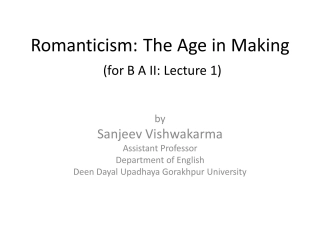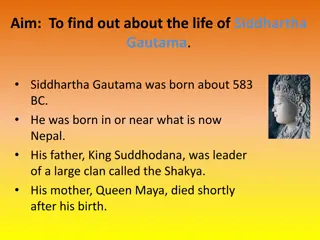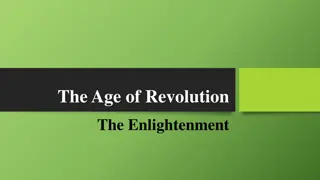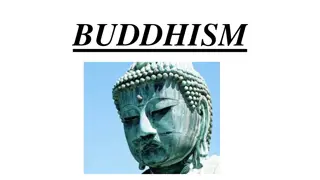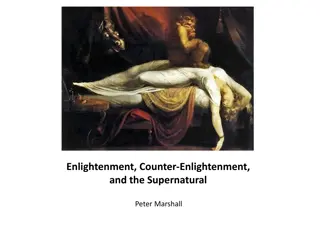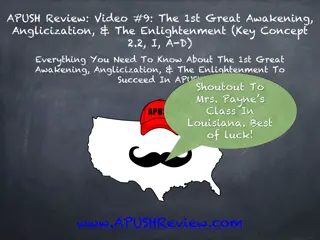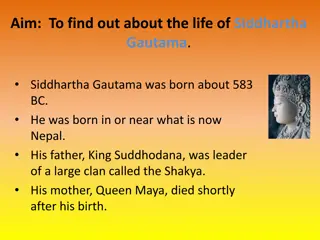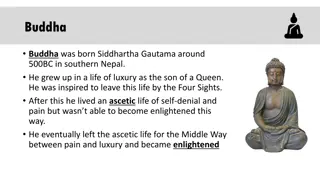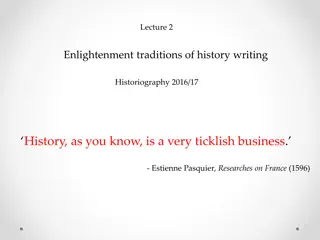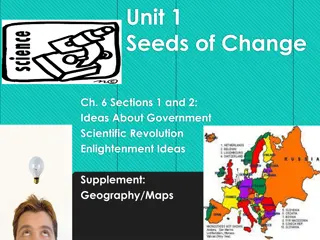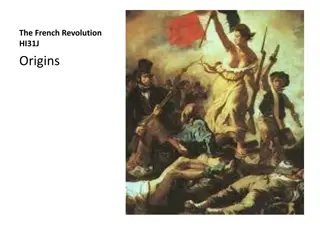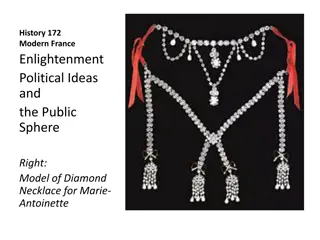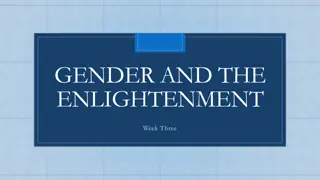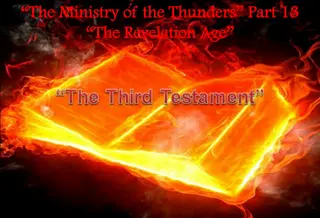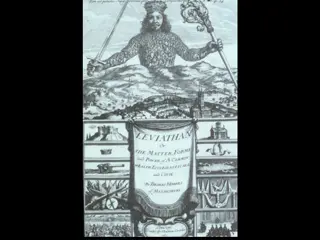The Frankfurt School: Dialectic of Enlightenment
The Frankfurt School, composed of notable figures like Max Horkheimer, Theodor Adorno, and Herbert Marcuse, delves into the self-destruction of the Enlightenment and the intertwining of social freedom and enlightened thought. Addressing the retreat from enlightenment into mythology, the school's work explores critical themes in societal development and human emancipation.
Download Presentation

Please find below an Image/Link to download the presentation.
The content on the website is provided AS IS for your information and personal use only. It may not be sold, licensed, or shared on other websites without obtaining consent from the author.If you encounter any issues during the download, it is possible that the publisher has removed the file from their server.
You are allowed to download the files provided on this website for personal or commercial use, subject to the condition that they are used lawfully. All files are the property of their respective owners.
The content on the website is provided AS IS for your information and personal use only. It may not be sold, licensed, or shared on other websites without obtaining consent from the author.
E N D
Presentation Transcript
The Frankfurt School: Dialectic of Enlightenment
German communist demonstration, Berlin, January 1919
Carl Grnberg (1861 1940)
Max Horkheimer (1895 1973)
Zeitschrift fr Sozialforschung (Journal for Social research)
Walter Benjamin (1892 1940)
In the most general sense of progressive thought, the Enlightenment has always aimed at liberating men from fear and establishing their sovereignty. Yet the fully enlightened earth radiates disaster triumphant. Adorno and Horkheimer, Dialectic of Enlightenment (1997 Verso edition), p.3.
The dilemma that faced us in our work proved to be the first phenomenon for investigation: the self-destruction of the Enlightenment. We are wholly convinced [ ] that social freedom is inseparable from enlightened thought. Nevertheless, we believe that we have just as clearly that the notion of this very way of thinking, no less than the actual historic forms the social institutions with which it is interwoven, already contains the seed of the reversal universally apparent today. Dialectic of Enlightenment, p. xiii
the prime cause of the retreat from enlightenment into mythology is not to be sought so much in the nationalist, pagan, and other modern mythologies manufactured precisely in order to contrive such a reversal, but in the Enlightenment itself when paralyzed by fear of the truth. In this respect, both concepts are to be understood not merely as historico-cultural (geistesgeschichtlich) but as real. Just as the Enlightenment expresses the actual movement of civil society as a whole in the aspect of its idea as embodied in individuals and institutions, so truth is not merely the rational consciousness but equally the form that consciousness assumes in actual life. Dialectic of Enlightenment, p. xiii - xiv
Knowledge, which is power, knows no obstacles: neither in the enslavement of men nor in compliance with the world s rulers. [ ] Technology is the essence of this knowledge. It refers to method, the exploitation of others work, and capital [ ]: the radio as a sublimated printing press, the dive bomber as a more effective form of artillery, radio control as a more reliable compass. What men want to learn from nature is how to use it in order wholly to dominate it and other men. That is its only aim. Ruthlessly, in despite of itself, the Enlightenment has extinguished any trace of its own self- consciousness. [ ] Enlightenment is totalitarian. Dialectic of Enlightenment, p. 4, 6.
The fallen nature of modern man cannot be separated from social progress. On the one hand the growth of economic productivity furnishes the conditions for a world of greater justice; on the other hand it allows the technical apparatus and the social groups which administer it a disproportionate superiority to the rest of the population. The individual is wholly devalued in relation to the economic powers, which at the same time press the control of society over nature to hitherto unsuspected heights. Even though the individual disappears before the apparatus which he serves, the apparatus provides for him as never before. In an unjust state of life, the impotence and pliability of the masses grow with the quantitative increase in commodities allowed them. Dialectic of Enlightenment, p. xiv - xv
Under monopoly all mass culture is identical, and the lines of its Under monopoly all mass culture is identical, and the lines of its artificial artificial framework begin to framework begin to show through. show through. T The he people at the top are no longer so interested in concealin people at the top are no longer so interested in concealing monopoly: as its g monopoly: as its violence becomes more open, so its power grows. Movies and radio need no longer pretend to violence becomes more open, so its power grows. Movies and radio need no longer pretend to be art. The truth that they are just business is made into an ideology in order to justify the be art. The truth that they are just business is made into an ideology in order to justify the rubbish they deliberately produce. [ rubbish they deliberately produce. [ ] The ruthl ] The ruthless unity in the culture industry is evidence of ess unity in the culture industry is evidence of what will happen in politics. Marked differentiations such as those of A and B films, or of what will happen in politics. Marked differentiations such as those of A and B films, or of stories in magazines in different price ranges, depend not so much on subject matter as on stories in magazines in different price ranges, depend not so much on subject matter as on classifying, organizing classifying, organizing and and labelling labelling consumers. consumers. S Something omething is provided for all so that none may is provided for all so that none may escape; the distinctions are emphasized and extended. escape; the distinctions are emphasized and extended. T The he public is catered for wi public is catered for with a th a hierarchical range of mass hierarchical range of mass- -produced products of varying produced products of varying quality, thus advancing the rule of quality, thus advancing the rule of complete quantification. complete quantification. E Everybody verybody must behave (as if spontaneously) in accordance with his must behave (as if spontaneously) in accordance with his previously determined and indexed level, and choose the category of mass product turned out previously determined and indexed level, and choose the category of mass product turned out for his type. for his type. C Consumers onsumers appear as appear as statistics on research organization charts, and are divided by statistics on research organization charts, and are divided by income groups into red, green and blue areas; the technique is that used for any type of income groups into red, green and blue areas; the technique is that used for any type of propaganda. propaganda. Dialectic of Enlightenment Dialectic of Enlightenment, p.121, 123. , p.121, 123.


